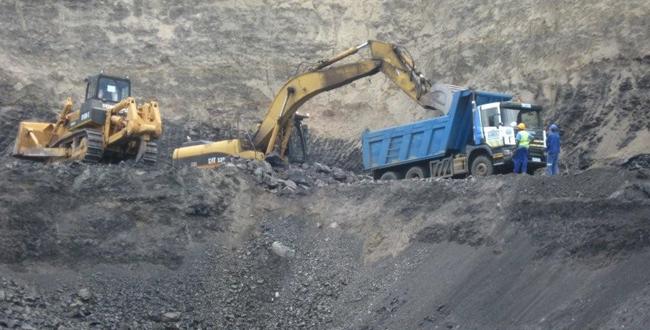
The African Minerals Development Centre — established by the African Union Heads of State — believes that Africa’s mineral endowments have the full potential to lift the continent out of poverty, catapulting it to “growth, development and prosperity for all”— if well-managed.
BY CHIPO MASARA
Meanwhile, in Zimbabwe, hopes of seeing the country being delivered from dire economic straits through full utilisation of its natural resources, mostly the vast mineral wealth, are slowly fading for most Zimbabweans.
While in the first decade or so after the country attained independence from colonial rule, the discovery of precious minerals always brought joy and happiness to the communities involved as it meant their areas would, in a major way, benefit economically; today it is a different case altogether. Because of the skin-deep corruption and short-sightedness in pursuit of quick profits that benefit a select few — which now characterises the country’s mining sector — mining operations have become a real curse for communities.
Except for a few remaining mining companies, the likes of Mimosa Mine, Unki Mine and Ngezi Mine, that still make efforts — in spite of the tough operating environment in the country — to bring development to the communities in which they operate, most mining companies have brought nothing but destruction and despair.
The community of Shurugwi, for instance, was left heartbroken when Saunders Golf Course in Railway Block — a place that had a plush green lawn on which golf tournaments of a high magnitude used to be hosted — was left a grossly disfigured landscape filled with piles of rubble, sand and pools of mudded water. The golf course had overnight been overturned by Chinese miners — who had taken over chrome mining giant, Zimasco — all in search of chrome.
Little is known about whether the miners indeed found the chrome, and if so, whether it benefitted the country in any way. As for the golf-loving people of Shurugwi, they now have to travel 33km to Gweru to play the sport.
- Chamisa under fire over US$120K donation
- Mavhunga puts DeMbare into Chibuku quarterfinals
- Pension funds bet on Cabora Bassa oilfields
- Councils defy govt fire tender directive
Keep Reading
In Mutoko, the communities there have been left with no choice but to finally let go of the notion that black granite — a mineral found there in abundance — will contribute to their socio-economic development. All the communities have to show for the extensive mining activities that have for years been taking place in their area, are the big cracks on their houses and school blocks as a result of quarry blasting, unprotected open pools and pits that have claimed human and livestock’s lives and roads that are heavily damaged by trucks as they transport the mineral — among many other ills brought to their community by the mining activities.
But it is the diamonds that were discovered in the Marange area in Manicaland that have proved to be the biggest curse yet. Having been found during a time the country was sinking, everyone believed it was the ultimate answer to the country’s economic woes. But people were to soon realise just how wrong they had been as mining in the area continually became shrouded in secrecy. While extensive mining of the gems continued in the area, people were shocked to hear nothing significant was going to Treasury. In the meantime, environmental degradation went on unabated as mining companies in the area — mostly Chinese nationals — did not seem at all bothered by environmental laws that required that they operate in a manner that didn’t prove detrimental to the land and to communities. It was almost as if the laws of the land did not apply to them!
Today, it is a sentiment greatly shared by the inhabitants of Marange that had it not been for the discovery of diamonds in their area, their village would be a better place to live in.
As if the high level of violence and lawlessness brought to the area by the diamond rush, and the forced movement of people from their homes to make way for mining companies was not enough, the community today is in dire straits as Save River — which had been a source of livelihood for many — is heavily polluted and depleted owing to mining.
According to a scientific study commissioned by the Zimbabwe Environmental Law Association and carried out by the University of Zimbabwe, the water in Save River is contaminated “to such an extent that communities cannot use the water for drinking purposes anymore, while coming into contact with the water and mud cause an itching of the skin.”
Add to all that, the nation recently woke up to the shocking revelation by the country’s president that $15 billion worth of diamonds had been pillaged, without a trace. In the same breath, President Robert Mugabe revealed another shocker — that only $2 billion had so far been realised from the diamonds, whose mining commenced sometime back in 2006.
Many believe such a scenario would have been avoided if the government had more information on the true value of the country’s natural resources; if there was more transparency on their contracts with private companies and more importantly, if there were accountability measures in place that effectively disallowed the pillaging of the country’s mineral resources.
However, while many would agree the minerals in the country have so far been a curse, it is possible to turn them into a huge blessing — but that will only happen if the mistakes of the past are corrected and avoided going forward.
l For feedback, email [email protected]












